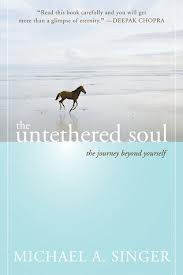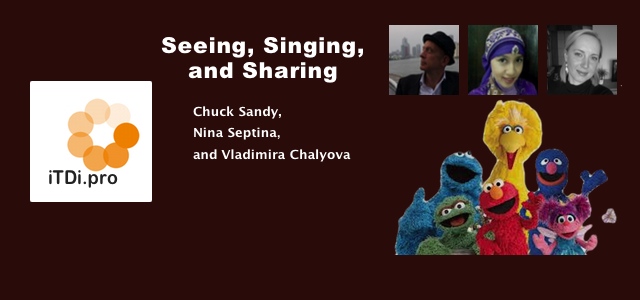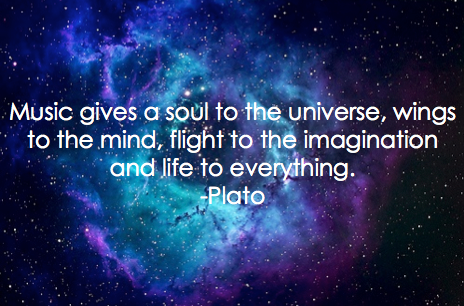Will You Please Be Quiet, Please — Chuck Sandy
When I first came to Japan, I lived in Tokyo and worked not too far from where I’m sitting now in the Ginza area of Tokyo.  For several years, I’d finish classes and head to Ginza to wander the streets. I can honestly say that I’ve never been lost in Ginza– until this morning.
For several years, I’d finish classes and head to Ginza to wander the streets. I can honestly say that I’ve never been lost in Ginza– until this morning.
Yesterday, I traveled to Tokyo from rural Japan for a conference. As usual when I’m in Tokyo, I booked a hotel in Ginza but this time reserved a room at a new hotel – a few blocks from where I usually stay. This morning, I woke up there with a lot on my mind and went for a walk. I had no destination in mind. All I wanted to do was walk. I confirmed the check out time. 11 AM. I had two hours to wander and off I went.
As I walked, I thought about a loved one going through a difficult time, about a conversation I’d had in which I was unable to express my ideas clearly or kindly enough. Soon, I was remembering advice my father had once given me that would have been useful yesterday. Meanwhile, I was reminding myself to email this person or call that one, thinking about this blog post and where I’d write it, and deciding what order I should do what. That’s when I looked up and saw that it was 10:45 and I was lost.
I looked around for landmarks, spotted one, and headed in what I was sure was the right direction. It was the right direction, but while I was out construction workers had put scaffolding outside my hotel, making it look like nothing I’d seen before. I passed right by it in a panic.
I started mentally rehearsing the language I would use to explain why I was late checking out. What form of the verb should I use, and why hadn’t I just checked out before I went for a walk? Why had I even booked this hotel? Gosh, Chuck, you’re such an idiot., I told myself. While having this internal conversation, I walked by the hotel three times before asking a construction worker for directions. “It’s right in front of you,” he said, “You’re looking at it.”
My internal chatter, my increasing panic, and my stored mental image of the hotel entrance had blinded me. I’d gotten lost inside myself. It happens. It happens to all of us, and it happens frequently in the classroom.
 I’m reading a book called The Untethered Soul by Michael A. Singer. In this book, Singer writes about the voice inside all of us, about how that voice can get us to believe it is who we are and is reality itself. It’s not. “What voice?” I can hear you asking. Say the word “hello” silently in your mind. Make your inner voice say “hello” several times. Hear that? That voice. Make it shout “hello” inside yourself. Make it say, “I’m not good at ______.” No, stop. Don’t complete that sentence. Make the voice say, “I’m really good at ______. Complete the sentence in different ways. Listen to yourself. Now, think about this.
I’m reading a book called The Untethered Soul by Michael A. Singer. In this book, Singer writes about the voice inside all of us, about how that voice can get us to believe it is who we are and is reality itself. It’s not. “What voice?” I can hear you asking. Say the word “hello” silently in your mind. Make your inner voice say “hello” several times. Hear that? That voice. Make it shout “hello” inside yourself. Make it say, “I’m not good at ______.” No, stop. Don’t complete that sentence. Make the voice say, “I’m really good at ______. Complete the sentence in different ways. Listen to yourself. Now, think about this.
Inside all of us, writes Singer, “there is a voice talking, and there is you who notices the voice talking and you listening.” Are you the voice, the observer, or the listener? Think about this and you’ll realize you are the one who listens, not the one who’s talking. You’ll also understand that your inner voice isn’t reality. It’s your mental model of reality and when you pay too much attention to it or let it get out of control, it can get you lost and panicky.
In the classroom, this is the voice that can say things like this isn’t working and that student is causing problems and I should have planned better and I’m not very good at …. .” Stop it. You’re getting lost. Take a deep breath. Look for landmarks, spot one and head in that direction. Better yet, before you get to class, take some moments to quiet that voice. At the very least, get it to tell you something good.
As always, I’m writing about something I’m trying to get better at myself. Obviously, I fail sometimes and wind up lost and panicky. What’s clear to me is that if I want to see clearly what really is, I’m going to have to keep working on this while telling myself this noisy chatter inside me is not me. I am good enough. This IS going to be FUN. Now, will you please be quiet please?
Connect with Chuck and other iTDi Associates, Mentors, and Faculty by joining iTDi Community. Sign Up For A Free iTDi Account to create your profile and get immediate access to our social forums and trial lessons from our English For Teachers and Teacher Development courses.
Like what we do? Become an iTDi Patron.
Your support makes a difference.







 For several years, I’d finish classes and head to Ginza to wander the streets. I can honestly say that I’ve never been lost in Ginza– until this morning.
For several years, I’d finish classes and head to Ginza to wander the streets. I can honestly say that I’ve never been lost in Ginza– until this morning. I’m reading a book called The Untethered Soul by Michael A. Singer. In this book, Singer writes about the voice inside all of us, about how that voice can get us to believe it is who we are and is reality itself. It’s not. “What voice?” I can hear you asking. Say the word “hello” silently in your mind. Make your inner voice say “hello” several times. Hear that? That voice. Make it shout “hello” inside yourself. Make it say, “I’m not good at ______.” No, stop. Don’t complete that sentence. Make the voice say, “I’m really good at ______. Complete the sentence in different ways. Listen to yourself. Now, think about this.
I’m reading a book called The Untethered Soul by Michael A. Singer. In this book, Singer writes about the voice inside all of us, about how that voice can get us to believe it is who we are and is reality itself. It’s not. “What voice?” I can hear you asking. Say the word “hello” silently in your mind. Make your inner voice say “hello” several times. Hear that? That voice. Make it shout “hello” inside yourself. Make it say, “I’m not good at ______.” No, stop. Don’t complete that sentence. Make the voice say, “I’m really good at ______. Complete the sentence in different ways. Listen to yourself. Now, think about this. A rule, law, or regulation is a prescribed guide for action. That could be the definition you can get from any dictionary. For me, a rule is something that you try to keep in mind as a line that shouldn’t be crossed — unless it is unavoidable.
A rule, law, or regulation is a prescribed guide for action. That could be the definition you can get from any dictionary. For me, a rule is something that you try to keep in mind as a line that shouldn’t be crossed — unless it is unavoidable. Whether we’re talking about rules from the first or the second group of rules, over time we may find ourselves questioning them and may find them unsuitable for the present situation. That is the moment we can be called rule-breakers, inconsiderate or even insane. That is the moment we look for change and a way to overcome a present situation that no longer allows us to grow. That’s when we change.
Whether we’re talking about rules from the first or the second group of rules, over time we may find ourselves questioning them and may find them unsuitable for the present situation. That is the moment we can be called rule-breakers, inconsiderate or even insane. That is the moment we look for change and a way to overcome a present situation that no longer allows us to grow. That’s when we change.